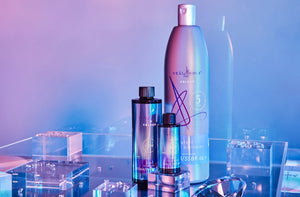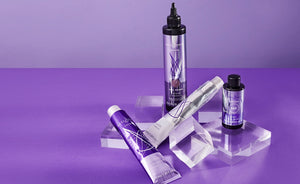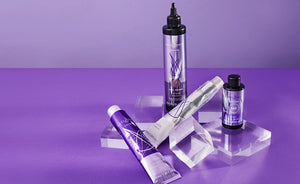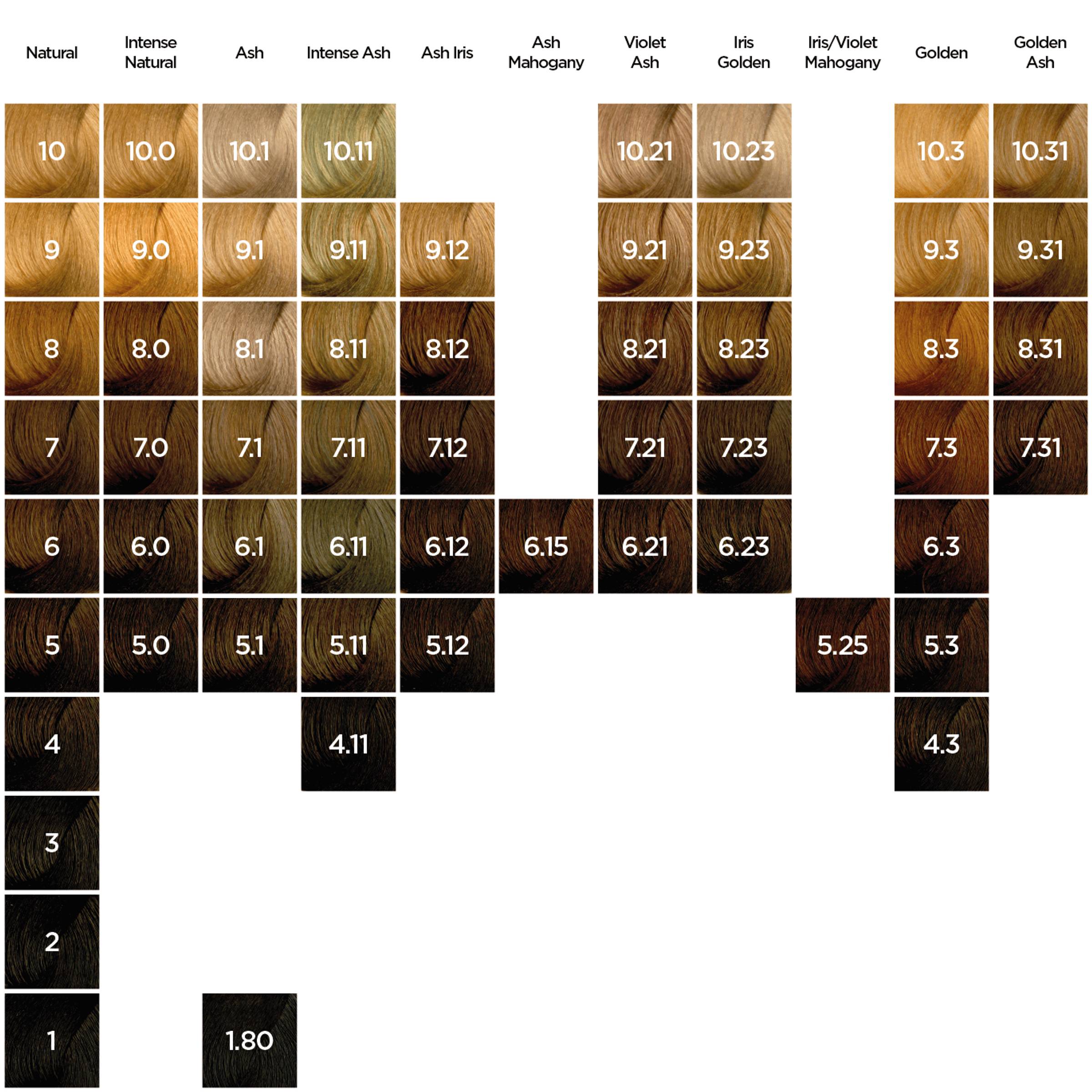
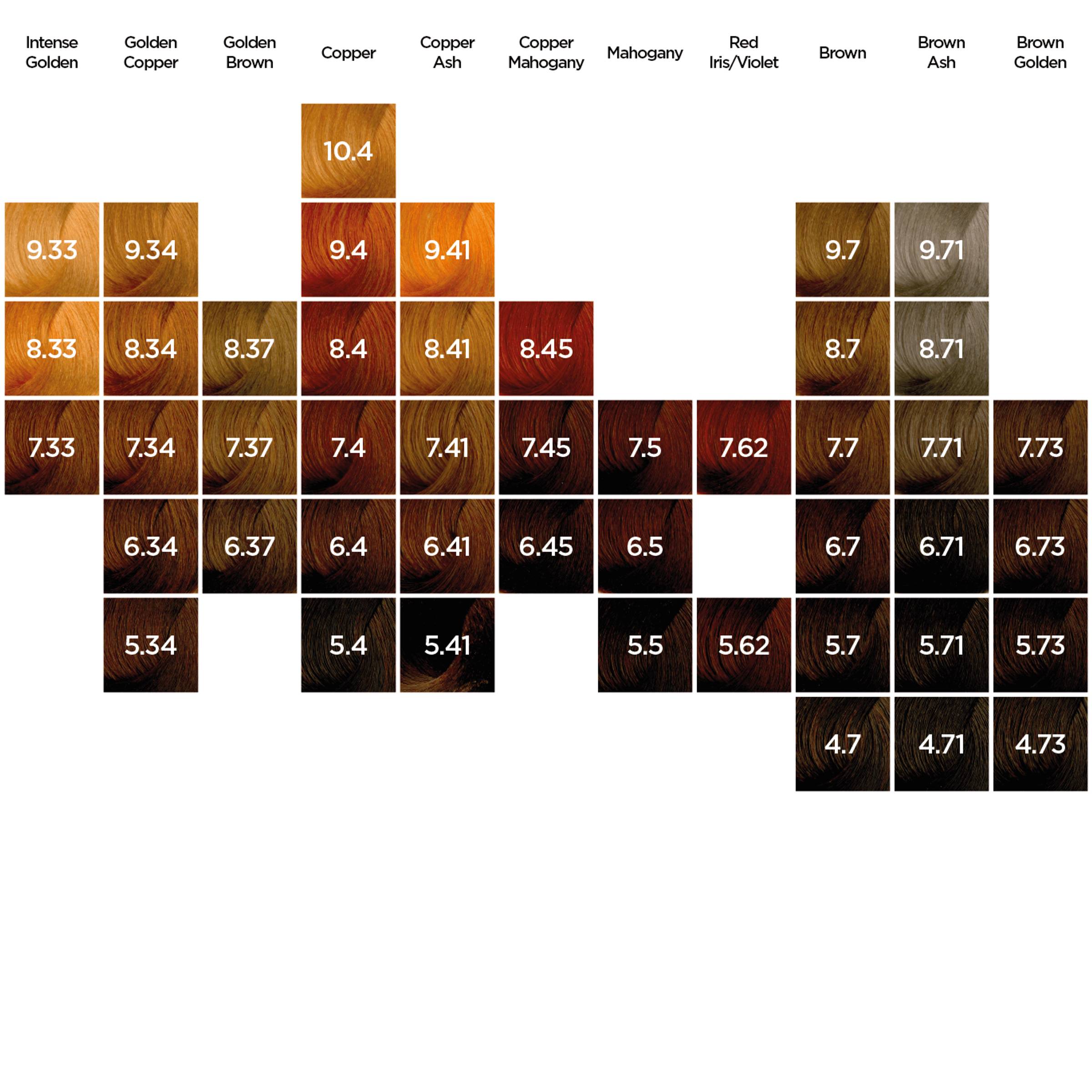
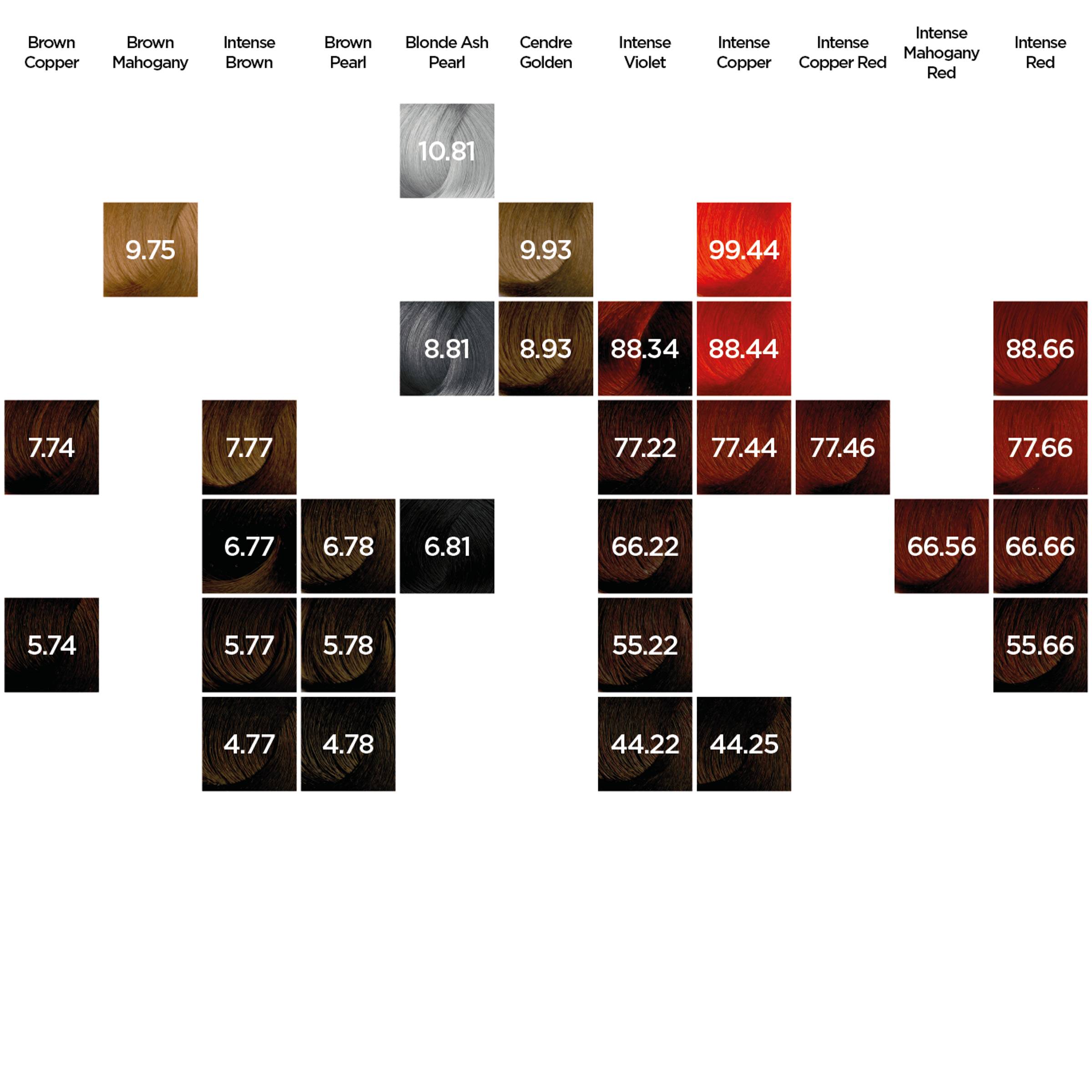
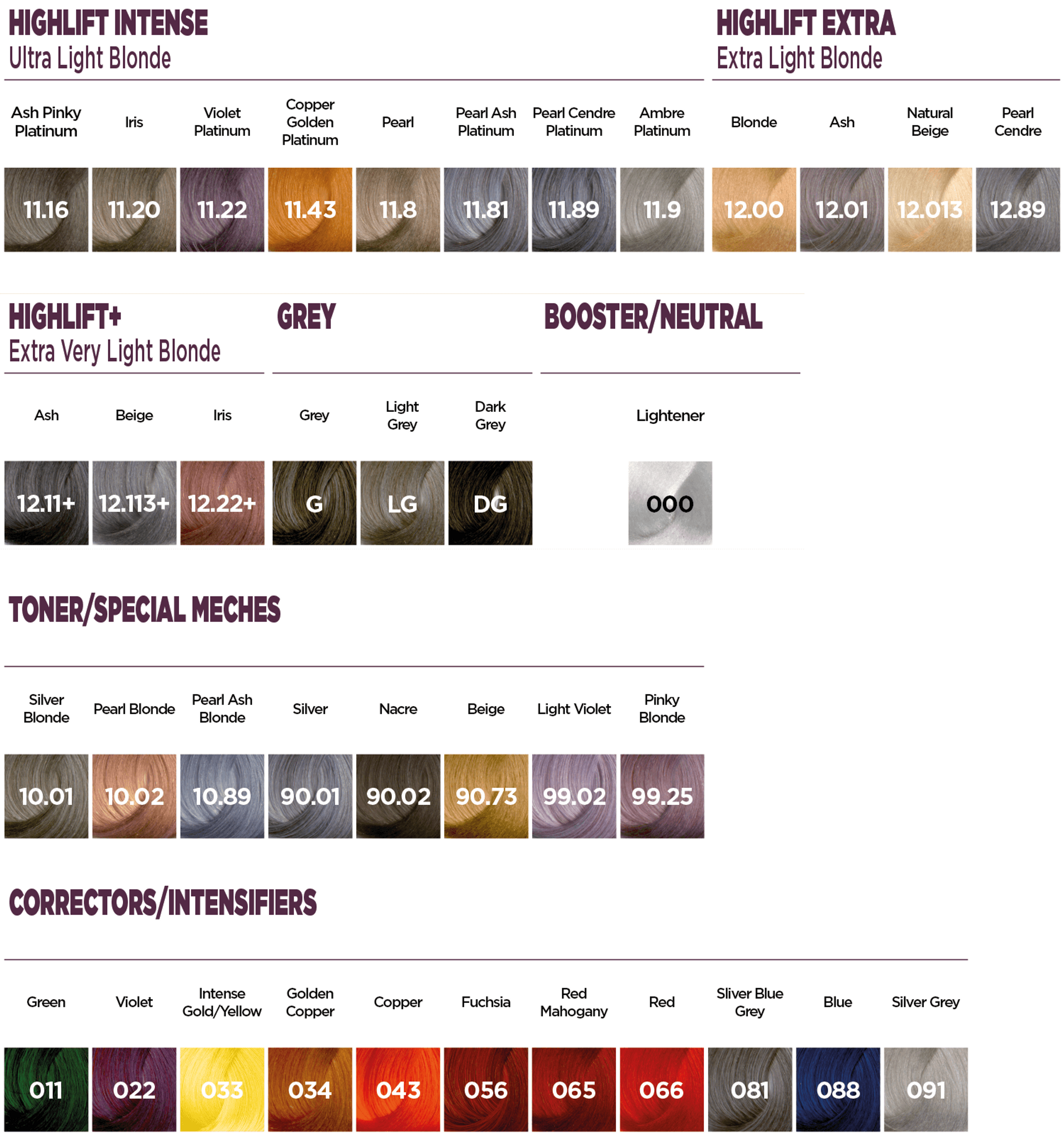
How it Works
Example:
.png%3Fv%3D1619706902784&c_options=)
The colour shade is Very Light Blonde with a Green Ash Tone.
Depth
The numbers on a hair colour shade chart represent the depth and tone of the colour. Anything that appears before the decimal point is the depth (how light or dark a colour is). The Neal & Wolf colours go from 1 to 10.
Tone
The number that appears after the decimal point represents the tone (how the colour appears to the eye). For example a 6.7 in our shade chart is a dark blonde with a brunette tone.
Depth
| 1 | Black |
| 2 | Darkest Brown |
| 3 | Dark Brown |
| 4 | Medium Brown |
| 5 | Light Brown |
| 6 | Dark Blonde |
| 7 | Medium Blonde |
| 8 | Light Blonde |
| 9 | Very Light Blonde |
| 10 | Lightest Blonde |
Tone
| .0 | Natural |
| .1 | Green Ash |
| .2 | Violet |
| .3 | Gold |
| .4 | Copper |
| .5 | Mahogany |
| .6 | Red |
| .7 | Brunette (warm) |
| .8 | Blue |
| .9 | Sand (equal parts of gold & Violet) |
Double Tones
You may also see colours with a double tone, for example 6.77. This a dark blonde with a double brunette tone. If you use a colour with a double tone the first tone that you see is the majority tone, around 70%, the second tone that you will see is called the secondary tone, around 30%.
Intense Colour
You will also see some colours in our shade chart that contain a double number before the decimal point, for example 77.66. This is an intense medium blonde with a double red tone. This means that this colour is part of our vivid red range and gives a more intense result.
Neutralising Tones
This colour numbering system also allows a colourist to neutralise unwanted colours. For example, to avoid a blonde hair colour from turning too warm you could add more .2 - Violet or .8 - Blue to counteract the yellow or orange tones.
Become a Neal & Wolf Colour Salon
Are you interested in finding out more about Neal & Wolf Colour? Simply complete your details below and we'll be in touch.
Explore our product and colour exams

